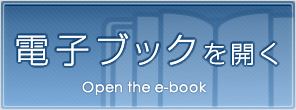「人道研究ジャーナル」創刊号 page 65/216
このページは 「人道研究ジャーナル」創刊号 の電子ブックに掲載されている65ページの概要です。
秒後に電子ブックの対象ページへ移動します。
「電子ブックを開く」をクリックすると今すぐ対象ページへ移動します。
概要:
Journal of Humanitarian Studies Vol. 1, 2012their national colleagues according to the host national society’s established standard operating proceduresand culture and systematically share best pract....
Journal of Humanitarian Studies Vol. 1, 2012their national colleagues according to the host national society’s established standard operating proceduresand culture and systematically share best practice. Red Cross and Red Crescent delegates and staff withsuch practical experience and expertise from international large scale disasters, familiar with Movementpolicies and standards, will be an invaluable resource if and when there is a disaster in their home country.The Emergency Response Units should be more flexible and integrated into existing national societystructures and systems so that they would also be suited for deployment with national societies in highincome countries, complementing their existing capacity and become part of their contingency planning.One of the immediately identified urgent needs in the JRCS after the tsunami was for delegates experiencedin communication with and reporting to international media and international donors. In general, nationalsocieties should make sure that they have sufficient capacity and competence to communicate criticaldisaster information in English as well as their own language to the public, media and their partners. Thisis an area where even a highly sophisticated and competent organisation like JRCS felt that it neededreinforcement during the emergency. Other expertise that may be needed from outside is in installingfunctional systems to restore family links, tracing services, how to use new technologies and how tomanage social media.Funding systemsJRCS did not appeal for international funding, but received massive support from other Red Crosses andRed Crescents after the tsunami, in total almost 1.2 billion USD from 92 other national societies andorganisations ? apart from the 3.7 billion USD donated to the Red Cross by the public in Japan. This wasearmarked for cash distribution by municipality authorities to disaster-affected people and could not beused for funding any other activities, a mode which should be reviewed and perhaps changed to allowJRCS greater flexibility in the futureReinforcing the trust held in its integrity and capacity, JRCS provided good information and welcomedpartners to visit and participate in the development of a recovery plan and budget that they would support.No agreed model for how to deal with the outpouring of unsolicited international funds existed, and it hadto be developed during the course of the operation. The IFRC should therefore formulate an operationalframework for national societies to use when accepting spontaneous donations from other national societies.This should regulate ways in which assistance could be channelled and specify the responsibilities of theoperating national society in accounting for the use of these funds. The development of this operationalframework must take account of existing policies and procedures. It must also determine how“no appeal”situations could be better handled in the future, based on the experience from Japan and similar disasters,such as Hurricane Katrina and the earthquake in Christchurch, New Zealand. This framework should alsoaddress the question of how the worldwide core institutional disaster response costs of the InternationalFederation’s secretariat could be met through funding also from resources raised for such disasters. Atpresent, this is entirely done through a percentage levied on multilateral funds contributed for disastervictims in low income countries. This seems both ethically questionable and in breach of the principle ofcollective responsibility.人道研究ジャーナルVol. 1, 201263

